by Lisa Cooke | Jan 6, 2017 | 01 What's New, Records & databases |
With an update to PERSI for genealogy, Pennsylvania birth and death records, and a tidbit or two from the United Kingdom and Scotland, you will start this year off right! It’s a new year and we are ringing in some great new and updated genealogical record collections.
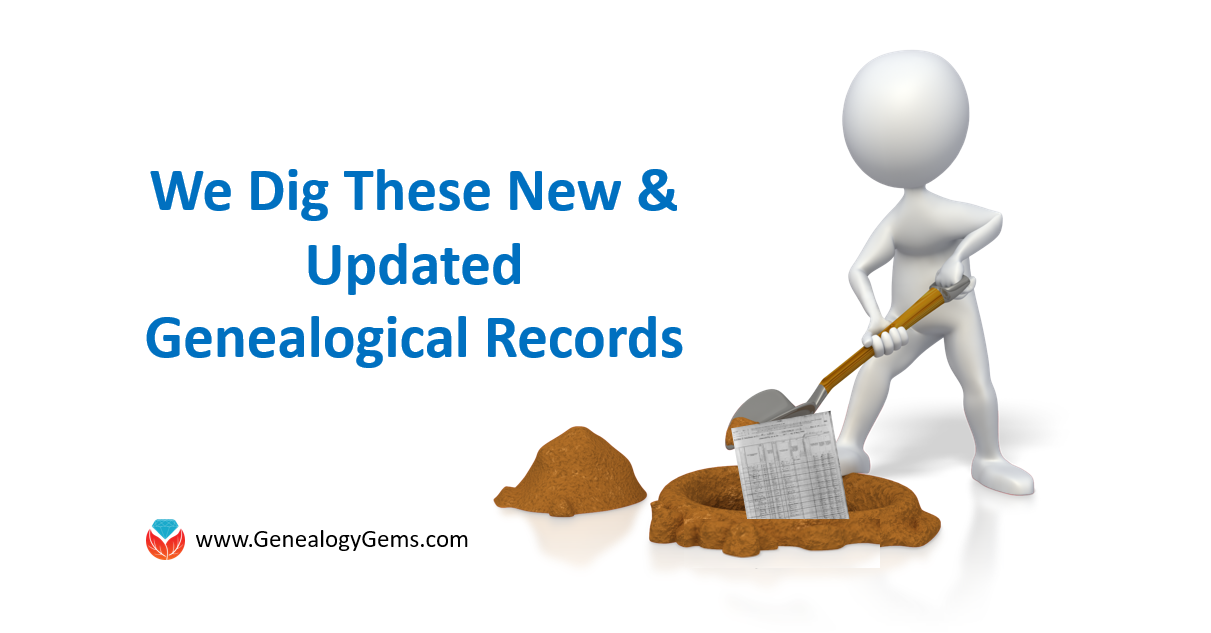
PERSI for Genealogy
A monthly PERSI update has been added at Findmypast. With over 67,000 new articles and five new titles, the Periodical Source Index is the go-to source for those looking for stories of their ancestors. The new titles cover the American Historical Society, Chicago, Maryland, and British family histories & heraldry and will allow you to discover articles, photos, and other material you might not find using traditional search methods.
To fully appreciate PERSI as a genealogical tool, read our previous blog post “PERSI for Genealogy: the Periodical Source Index.” And you’ll find more related articles at the bottom of this article.
Pennsylvania – Birth and Death Records
This week, the Commonwealth of Pennsylvania released the 1911 births (105 years old) and 1966 death records (50 years old) to the public. This makes birth records publicly accessible from 1906 through 1911, and deaths 1906 through 1966. This collection index is free through the Pennsylvania Historical and Museum Commission portal.
Ancestry.com offers these records in digital form as well, but there is a subscription cost to use Ancestry. However, Pennsylvania residents can access these records free of charge through Ancestry.com Pennsylvania.
To access the index only, start with the Pennsylvania Historical and Museum Commission page on Vital Statistics for links to the indexes. You need to know the year of the event and the surname. If you do not know the year, you can search several years, one by one. These indexes are not digitized but are PDF files of the ones the State uses. If you locate a state file number for a certificate, you can order it from the State Archives.
However, if you are a Pennsylvania resident, you will be able to access the certificates digitally using the link to Ancestry.com Pennsylvania as mentioned above.
United Kingdom – Huntingdonshire – Marriages
New at Findmypast this week, the Huntingdonshire Marriages 1754-1837 collection contains over 1,000 names taken from 26 volumes of marriage records from the Huntingdonshire district of Cambridgeshire. These records will allow you to discover when and where your ancestor was married.
Scotland – Roxburghshire – Patient Registers
Also at Findmypast, explore the Roxburghshire, Kelso Dispensary Patient Registers 1777-1781. These registers contain over 1,700 names that list the date and outcome of patients’ treatment (such as cured, relieved of symptoms, or died). This may be particularly helpful for those unable to find a death date.
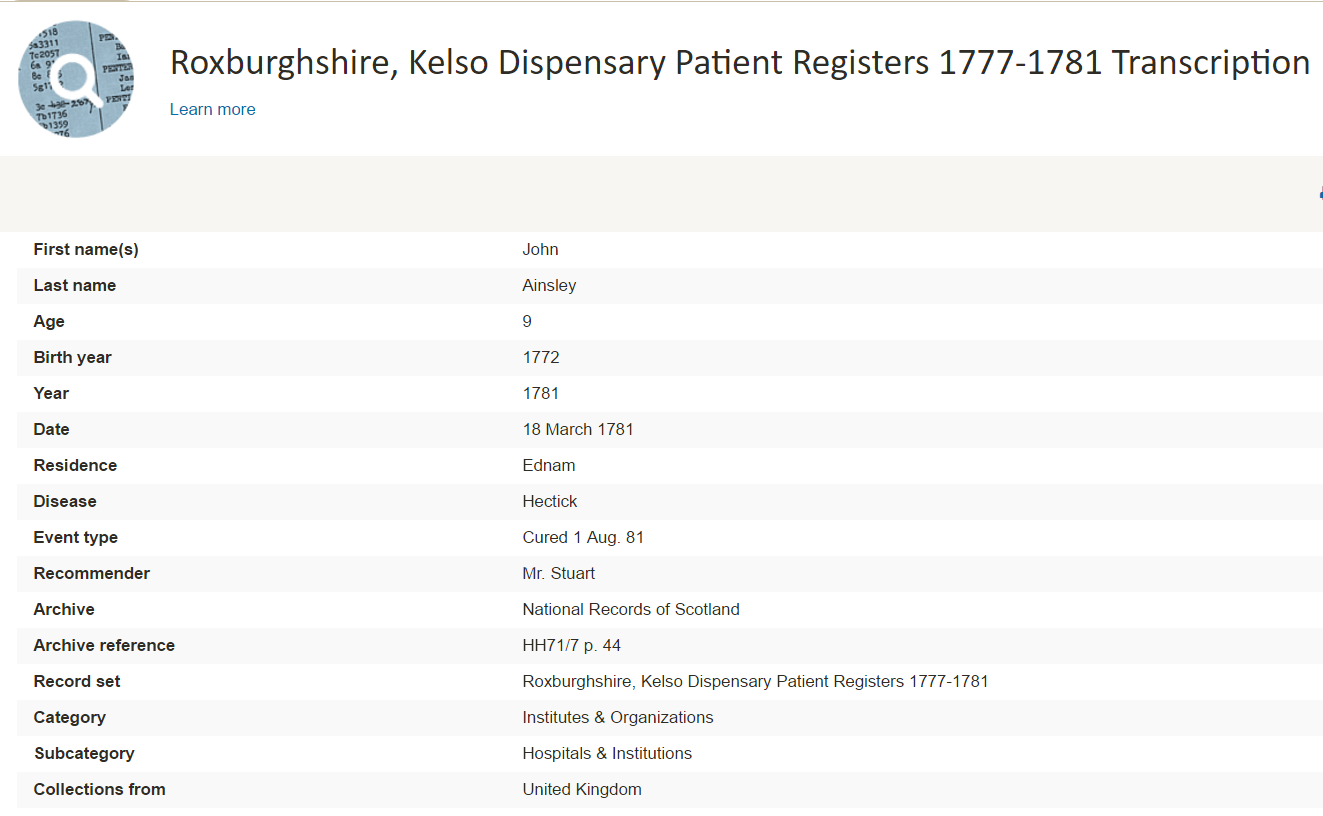
It should be noted that these are transcriptions only and you will not be able to see a digital image of the original.
More PERSI for Genealogy Articles
PERSI Digitized Collections Gaining Ground
New FindMyPast Hints Help Find Records
The Genealogy Gems Podcast Premium Episode 135: Compa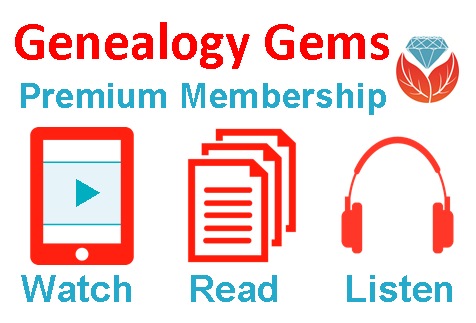 rsion of Google Scholar & PERSI (Premium Member Subscription Needed)
rsion of Google Scholar & PERSI (Premium Member Subscription Needed)
by Lisa Cooke | Jan 4, 2017 | 01 What's New, Conferences
Follow me, Lisa Louise Cooke, in 2017 as I share Google research techniques, newspaper research for genealogy, finding living relatives, and much more. I’ll be in Florida in February – here’s the scoop!
The Annual Pinellas Genealogy Society Seminar, co-sponsored by the Largo Public Library, is scheduled for 25 February 2017 at the Largo Public Library from 8 am to 4 pm. The library is located at 120 Central Park Drive, Largo, FL.
 I will be the featured speaker, in addition to three great breakout speakers. My four presentations are:
I will be the featured speaker, in addition to three great breakout speakers. My four presentations are:
1. Google Tools and Procedures for Solving Family History Mysteries
2. Getting the Scoop on Your Ancestors with Newspapers
3. Nine Strategies for Finding Living Relatives
4. Future Technology and Genealogy – 5 Strategies You Need
The topics of the breakout sessions will be (1) “How Do I Organize My Genealogy Records?” by Debbe Hagner, (2) “What’s New at FamilySearch.org with Focus on ‘Memories’” by Debra Fleming, and (3) “English & Welsh Family History: Useful Online Research Resources” by Liz Pearson.
In addition to the speakers, this event boasts a continental breakfast, box lunch, raffles, door prizes, huge book sale, and plenty of time to network with guest organizations and other researchers. The all-inclusive registration fee is $40 for PGS members and $45 for non-members. After 18 February, the cost is $50, so register early.
What: The Annual Pinellas Genealogy Society Seminar co-sponsored by the Largo Public Library
When: Saturday, 25 February 2017, from 8 am to 4 pm
Where: The Largo Public Library at 120 Central Park Drive, Largo, FL.
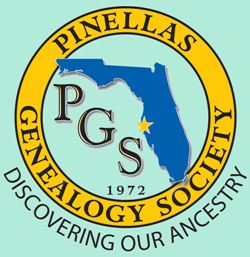
A detailed schedule of events and a registration form are found at http://www.flpgs.org/NMbrs/seminar/2017/Sem17.aspx . Questions can be addressed to pgsfla@yahoo.com.
My entire lecture schedule for 2017 can be viewed here. I hope to meet with many of you as you pursue genealogy greatness this new year!
by Lisa Cooke | Jan 2, 2017 | 01 What's New, DNA |
Here’s what you need to know before you encourage your relatives to join you on your genetic genealogy journey. There are a few things to think about before they spit in that tube and our DNA Guide, Diahan Southard, is here to help!
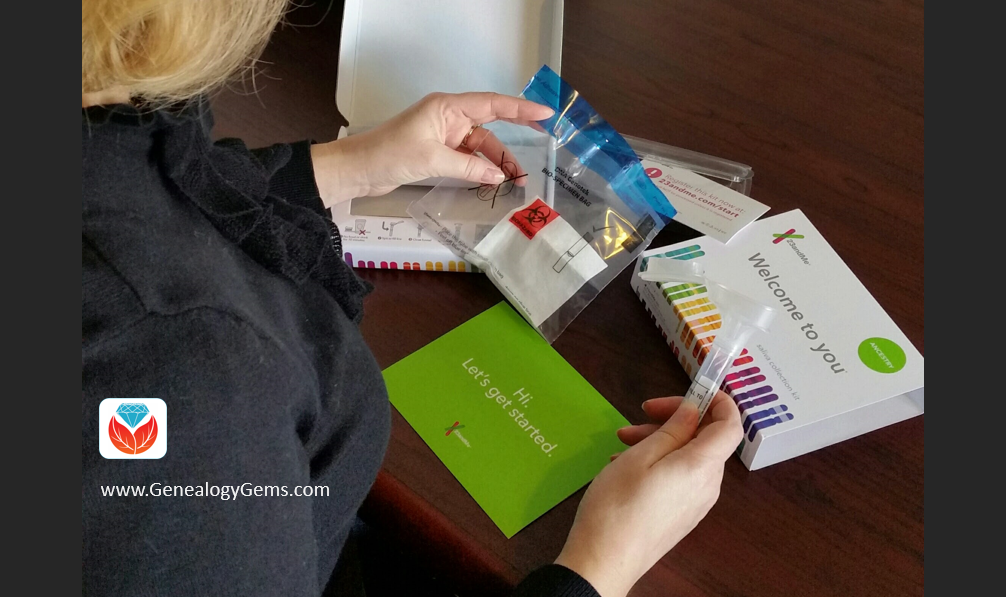
Did you see those holiday price wars on DNA testing over the holidays? I’m guessing we haven’t seen the end of these now that it’s becoming so trendy! Genealogists are seeing the research payoffs of DNA testing and now another major genealogy website (MyHeritage) is offering testing services, as well.
As the prices and sales generally become more attractive, more of you will want to expand your personal genetic database to include aunts, uncles, and cousins. But what is the best way to proceed? How exactly do you ask someone for his or her DNA? You may just have one shot at this. If so, which test? Which company? Here are three tips to consider before spitting into the tube!
Tip One: Test the Eldest Generation First
You likely have a limited amount of funds with which to populate your family genetic database, so you’ll want to use them wisely. Anyone who does not have both parents living should be tested first. Here’s what I suggest:
- ordering an autosomal DNA test for everyone
- ordering a YDNA for one male delegate for each surname you want represented
As for the testing company, you now have four choices:
1. FTDNA
2. 23andMe
3. AncestryDNA
4. MyHeritage
While there are several factors to consider when choosing a company, database size is probably the number one factor. Currently, AncestryDNA has the largest DNA database. The reason this is important is because your DNA will be matched and compared to others who have taken a DNA test. By testing with a company that has done lots of tests, your chance of finding matches goes up tremendously. You can also go to the International Society of Genetic Genealogy’s wiki for a full list of characteristics of each company.
Tip Two: Take Care of Everything for the Person Being Tested
Depending on the needs and interest of your relative, you can handle everything from ordering, payment, to even correspondence. All they have to do is spit or swab! This will often alleviate feelings of trepidation on part of the person being tested, especially if they aren’t really into this genealogy craze in the first place. Here are my recommendations:
If testing at Family Tree DNA: You will need to keep track of the log-in credentials for each relative.
If testing at AncestryDNA: Make sure all kits are registered under your account. The easiest way to do this is to have the family member take a photo of the activation code on the sample collection tube and send it to you so you can register it after you have logged into your Ancestry account. Hint: Register everyone’s DNA test results under the family member who has a subscription to Ancestry!
If testing at MyHeritage: Make sure that all kits are registered under your account. To the best of my knowledge, you order the kit under your account.
If your relative does want to be involved, all the better! You can have them share their Family Tree DNA or 23andMe login with you, or they can share their AncestryDNA results with you. To share their AncestryDNA results with you, visit my website at https://www.yourdnaguide.com/sharing-ancestrydna.
If you haven’t tested with a particular company yourself, familiarize yourself with the sample collection so you can be helpful when they have questions:
Tip Three: Share Your Own Experience
First of all, nothing speaks louder than your own experience. Before asking your relative to take a test, consider starting with a short summary of your own DNA journey. Keep in mind what might interest them – do they like deep history? If yes, you could share the ethnicity results of your own test. Did they have a special connection to Great-grandpa Joe? In this case, you could show how your DNA connected to a 2nd cousin who was also a descendant of Joe. Maybe you could bust out the photo album. Remind them that while Joe is gone, there are threads of DNA that can speak for him and we need as many of his descendants as possible to be tested in order to preserve his genetic legacy and unravel the mystery of his past.
A Few Last Thoughts on DNA Testing
Of course, your family is likely going to have questions; questions that you might not be able to answer. My Autosomal DNA for the Genealogist quick sheet might be just the thing you need to help them understand exactly what this DNA testing thing is all about and to prepare them for the results they are going to receive. You can also send them over to my website, Your DNA Guide, where I have a bit of information for them to look over. As always, anyone can contact me directly and I will answer any and every question they might have. Well, you know, at least questions about genetic genealogy!
Disclosure: This article contains affiliate links and Genealogy Gems will be compensated if you make a purchase after clicking on these links (at no additional cost to you). Thank you for supporting Genealogy Gems!
by Lisa Cooke | Dec 30, 2016 | 01 What's New, Records & databases
End 2016 on a high note with these new and updated genealogical record collections. Lisa soaked in Christmas tunes of Harlan County Kentucky’s pride and joy, Jordan Smith (winner of The Voice,) in a concert over the holidays. Harlan County can also be very proud of their incredible genealogical records. Today we are highlighting their county GenWeb page. This U.S. county GenWeb page has gone above and beyond in making Harlan County, Kentucky records accessible to the masses. Also this week, United Kingdom apprenticeship records, parish records, and Scotland mental health and prison records.

United States – Harlan County, Kentucky Records
This is not a new collection, though it may be new to you. Discovering the many U.S. GenWeb sites dedicated to genealogy is a great help to many. This week, we wanted to give a special hat’s off to the amazing work that Harlan County, Kentucky has done on their GenWeb page.
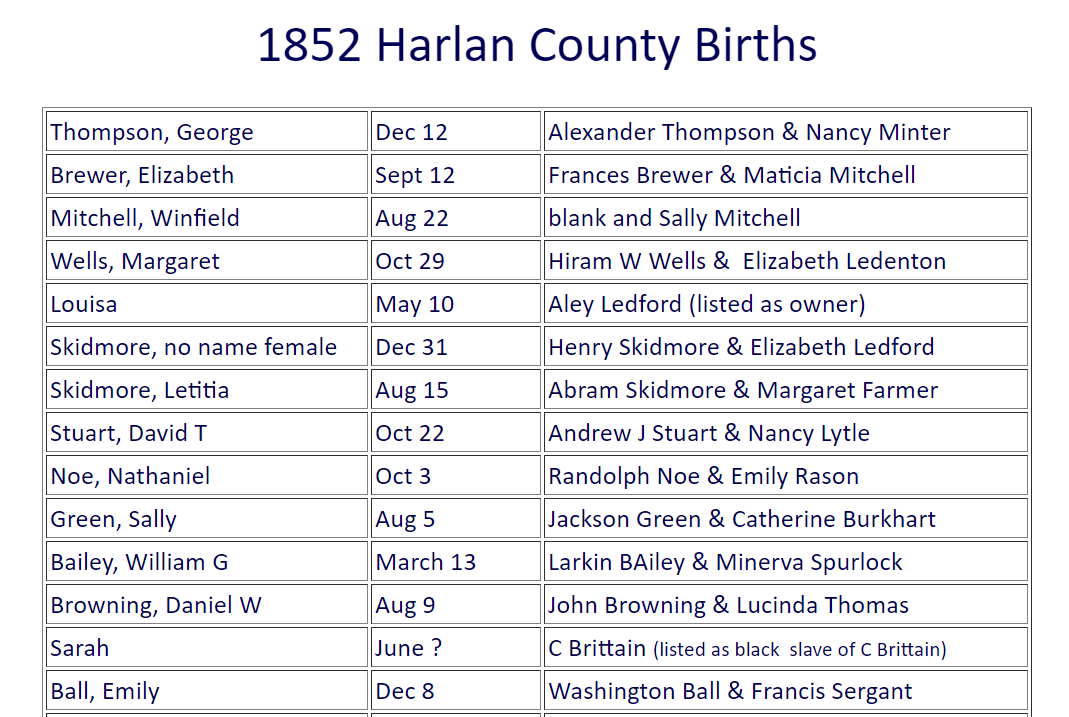
You will find digital images of people, places, schools, and newspaper clippings, but the best part is their extensive birth, marriage, and death indexes. The marriage records begin as early as 1818 and end about 1925. The birth record index begins in 1852 – 1940, though some years are missing. Lastly, the death records begin in 1852 – 1959, with a special collection on coal miners deaths.
In addition to these great findings, the Harlan County Kentucky GenWeb also has:
- Censuses

Christian music superstar Michael W. Smith accompanies Jordan Smith singing “O Holy Night” in Dallas, Texas. 2016.
- Court records
- Tax records
- Deeds
- Wills
- Military records
- Bios
- Family files
United Kingdom – Gloucester – Apprenticeship Records
The Gloucester Apprentices 1595-1700 at Findmypast contain over 20,000 apprentices, masters, and their relatives who were listed in the Calendar of the Registers of Apprentices of the City of Gloucester 1595-1700. The calendar has been digitized with optical character recognition (OCR), which allows you to search images of text for your ancestor’s name or a keyword.
Each record will list the apprentices trade, residence, the name of their father, the name of their master, the name of their master’s wife, the length of their term and the amount they were paid at the end of their training.
These records will be particularly helpful for those unable to find civil or church records regarding their ancestors.
United Kingdom – Kent – Parish Records
Also at Findmypast this week, over 36,000 new additions have been made to the Kent Parish Records collection. Specifically:
· Over 14,000 additional baptisms
· Over 1,000 additional banns records
· Over 11,000 additional marriages
· Over 9,000 additional burials
These new records date as far back as 1538 and cover the parishes of Wrotham, Stansted, Wouldham, Southfleet, and Leybourne.
Scotland – Mental Health Records
The Scotland Mental Health Institutions Admissions 1857-1859 at Findmypast include over 1,000 records from over 50 mental health institutions including asylums and poorhouses. Though these records tell a sad story, they may help you to piece together the family story.
Each record includes a transcript of an original document and may provide your ancestors’ birth place, birth date, former residence, and the institution they were sent to and the date of their admission.
Scotland – Prison Registers
You can search over 17,000 transcripts of prison registers in the Findmypast collection titled Scotland Prison Registers Index 1828-1884.
Each record lists the prisoners age, birth year, birth place, occupation, former residence, offence and place of imprisonment.
Start the New Year off Right
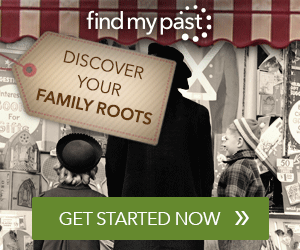 Here’s a New Year bargain you can’t ignore – 10% off 12 month premium subscriptions to Findmypast. Today is the last day to save! They have over 2 billion (yes, that’s billion with a B!) records and more are added every day. Make 2017 a year full of fascinating family history discoveries by clicking on this image link below.
Here’s a New Year bargain you can’t ignore – 10% off 12 month premium subscriptions to Findmypast. Today is the last day to save! They have over 2 billion (yes, that’s billion with a B!) records and more are added every day. Make 2017 a year full of fascinating family history discoveries by clicking on this image link below.
by Lisa Cooke | Dec 23, 2016 | 01 What's New, Records & databases
Happiest of holiday greetings to you! Celebrate with us as we share the gift of new and updated genealogical collections like censuses, histories, and school records from all around the world. This week: the United Kingdom, Australia, France, Peru, Ecuador, and the U.S.
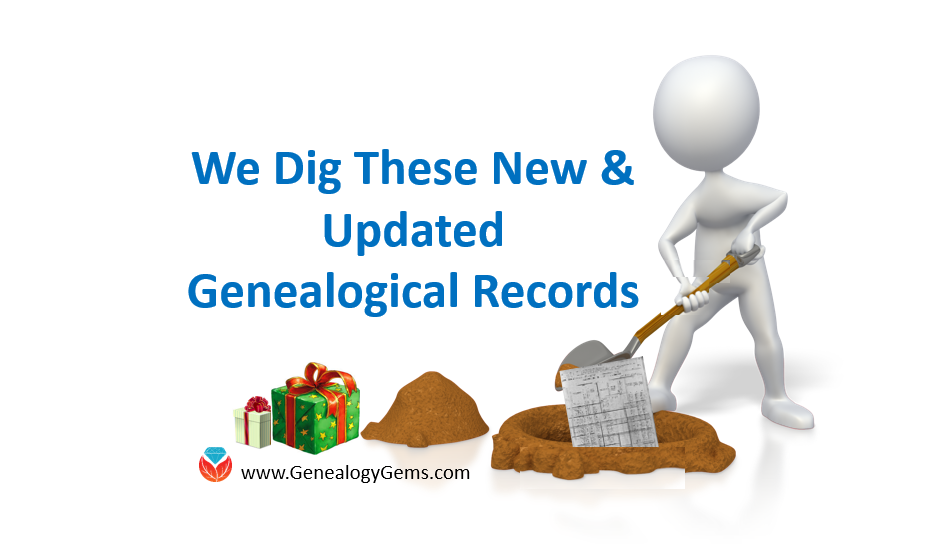
United Kingdom – Military
New records at Findmypast this week include the British Army discharges, 60th Foot 1854-1880. These British Army discharges will allow you to find your ancestor who served in the King’s Royal Rifle Corps. The records will contain service numbers, ranks, and the reason for discharge.
The 60th Regiment of Foot saw action in the Seven Years War, Napoleonic Wars, and Peninsular War. They have served in India, Burma, Afghanistan, China, and South Africa. The men found in these records most likely fought in The Indian Mutiny (1857-1859), in Canada during the Fenian raids (1866-1867), and The Zulu War (1879).
United Kingdom – Histories
Over 13,000 records have been added to Findmypast’s collection titled Britain, Histories & Reference Guides. The collection consists of 65 volumes on genealogy, heraldry, palaeography, geography, and more. The information found in these records may provide you with more insight into the lives of your ancestors and an better understanding of British life. For a more detailed description of the history publications and what each may offer, see the list at the bottom of the collection page.
England – Middlesex – Military
The Middlesex War Memorials at Findmypast contain over 21,000 transcripts of memorials from over 40 parishes across the English county of Middlesex. The new additions to this collection list the names of soldiers who died while on active service between 1845 and 1998.
Each record will include a transcript of the individual entry from the war memorial and a full transcript of all the names that appeared alongside your ancestor. Other information found on the records may include the conflict they served in, where and when they were killed, a brief description, and additional notes. Transcripts also include links from the West Middlesex Family History Society providing greater detail about the memorial such as the memorial’s location and explanations of abbreviations.
Australia – Queensland – Passports
Also at Findmypast this week, the Queensland Passports Index 1915-1925 of over 13,000 names is a helpful collection for those searching traveling ancestors! This collection is an index. The original registers were compiled by the Collector of Customs, Brisbane, and are currently held by the National Archives of Australia. Each record includes a transcript and may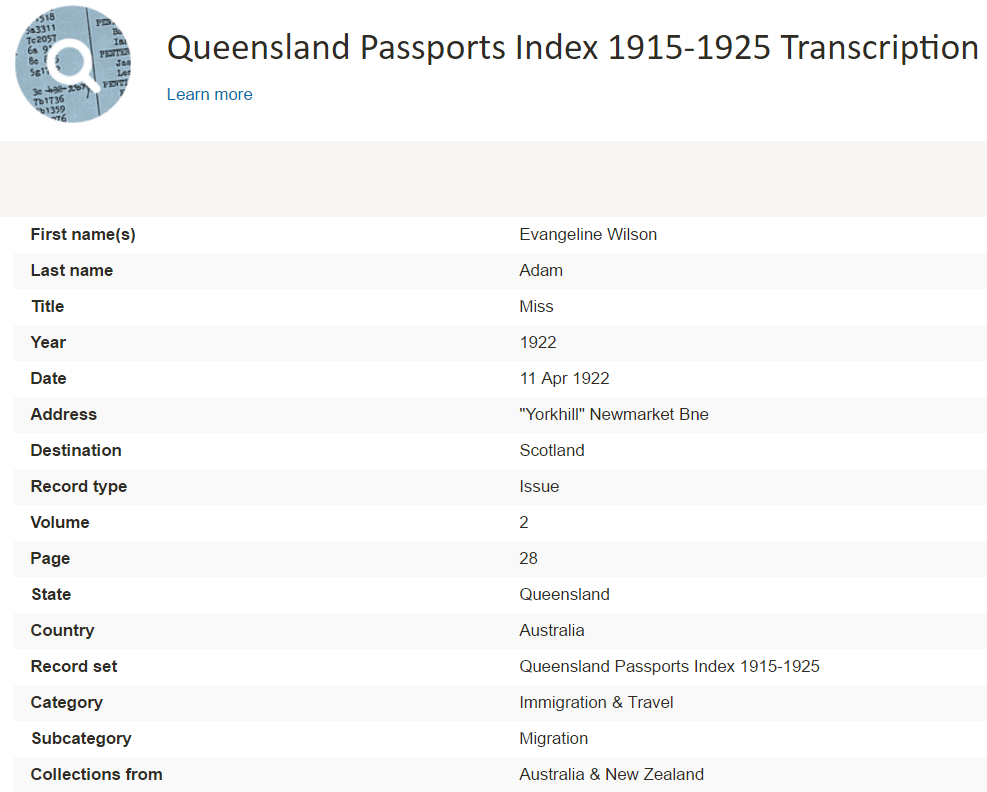 contain the following information:
contain the following information:
- Name
- Year the record was taken
- Address or residence
- Date they applied for or renewed a passport
- Their intended destination
Depending on the period covered, the registers themselves may include additional information such as passport numbers, warrant numbers, and remarks. Remarks may include details about soldiers returning home from the Great War.
Australia – New South Wales – Census
Explore the only surviving records from the New South Wales 1841 Census at Findmypast. Containing almost 11,000 names, this collection includes both fully searchable transcripts and scanned images of the original household returns, affidavit forms, and abstracts of returns.
Censuses like these often help piece together the family unit. Names, sex, ages, and birth places are common finds in this record set. Images of the original forms may also occasionally provide you with additional information such as:
- Religion
- Occupation
- Civil condition
The amount of information included will vary depending on the type of document.
France – Dordogne – Census
New and updated genealogical collections at FamilySearch this week include the France, Dordogne, Censuses, 1856 and 1876. These censuses may contain the following information:
- Surname
- Given name
- Age
- Occupation
- Nationality
- Position in the household
Each record contains a transcription and digital image. These census records are in French.
Peru – Civil Registration
Civil registration records are particularly helpful when church records are unavailable. FamilySearch has added new records to their collection titled Peru, La Libertad, Civil Registration, 1903-1998. Births, marriages, deaths, and other records are contained in this collection set. Some of these records have been indexed and are searchable. Additional images and indexed records will be published as they become available. These records are written in Spanish.
Ecuador – Church Records
FamilySearch collection Ecuador, Catholic Church Records, 1565-2011 contain some new Catholic Church records created by parishes and dioceses in Ecuador. These records include: baptisms, confirmations, marriages, pre-marriage investigations, deaths, and indexes. Some of the records have been indexed and are searchable. Remember, you can always browse the collection of nearly 1.5 million records. Church records are a great resource when civil records have been lost or damaged.
United States – Oklahoma – School Records
Oklahoma, School Records, 1895-1936 are now available to search on FamilySearch. This collection includes school records and annual censuses of pupils who attended schools in Woodward County, Oklahoma between 1895 and 1936. The records are generally arranged by years and then in numerical order by school district. Many of them list the name of pupil, pupil’s date of birth, and the names of parents or guardians.
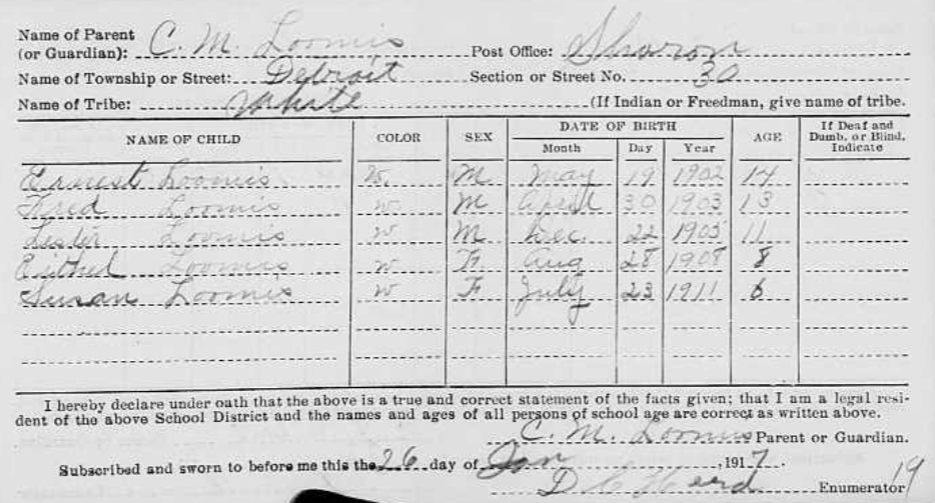
The records helped local governments determine funding needs for individual schools so the information is generally reliable. These records can also provide supporting evidence of parental and familial relationships.
Learn More About School Records for Genealogy
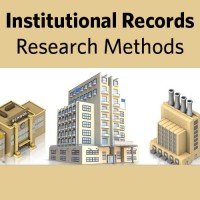 From schools and orphanages to prisons, hospitals, asylums, workhouses, and more, there’s a good chance one or more of your ancestors might be found on record in one of the many types of institutions. In this Premium eLearning video, Institutional Records Research Methods, Lisa Louise Cooke presents methods for finding your ancestors in institutional records, from establishing a workflow and investigating clues found in the census and other records to resources and strategies for digging up the records. This 40-minute video includes a downloadable handout and is available right now to all Premium eLearning members. Click here to sign up!
From schools and orphanages to prisons, hospitals, asylums, workhouses, and more, there’s a good chance one or more of your ancestors might be found on record in one of the many types of institutions. In this Premium eLearning video, Institutional Records Research Methods, Lisa Louise Cooke presents methods for finding your ancestors in institutional records, from establishing a workflow and investigating clues found in the census and other records to resources and strategies for digging up the records. This 40-minute video includes a downloadable handout and is available right now to all Premium eLearning members. Click here to sign up!
Disclosure: This article contains affiliate links and Genealogy Gems will be compensated if you make a purchase after clicking on these links (at no additional cost to you). Thank you for supporting Genealogy Gems!


 rsion of Google Scholar & PERSI (Premium Member Subscription Needed)
rsion of Google Scholar & PERSI (Premium Member Subscription Needed)
 I will be the featured speaker, in addition to three great breakout speakers. My four presentations are:
I will be the featured speaker, in addition to three great breakout speakers. My four presentations are:





 contain the following information:
contain the following information:




